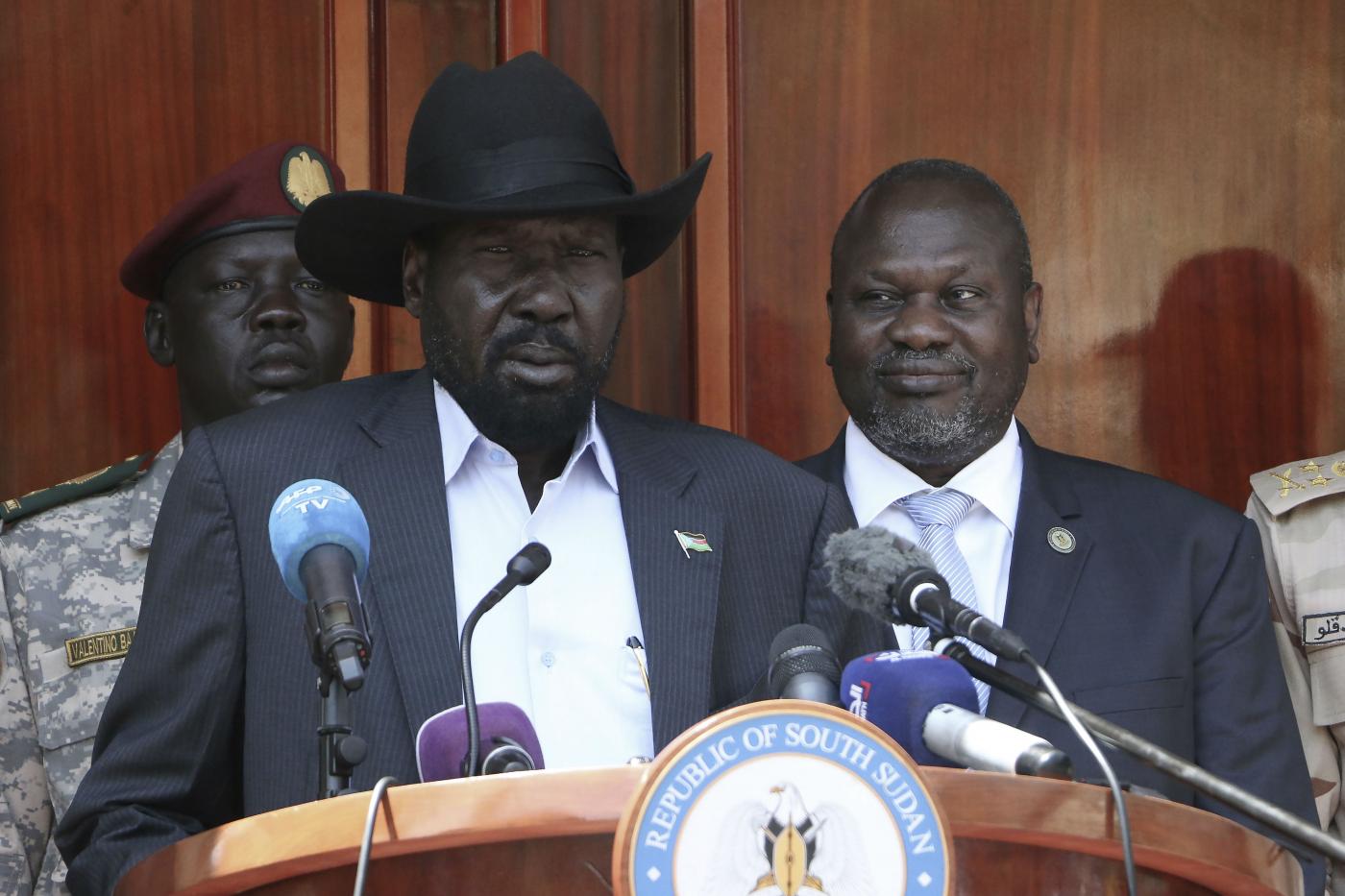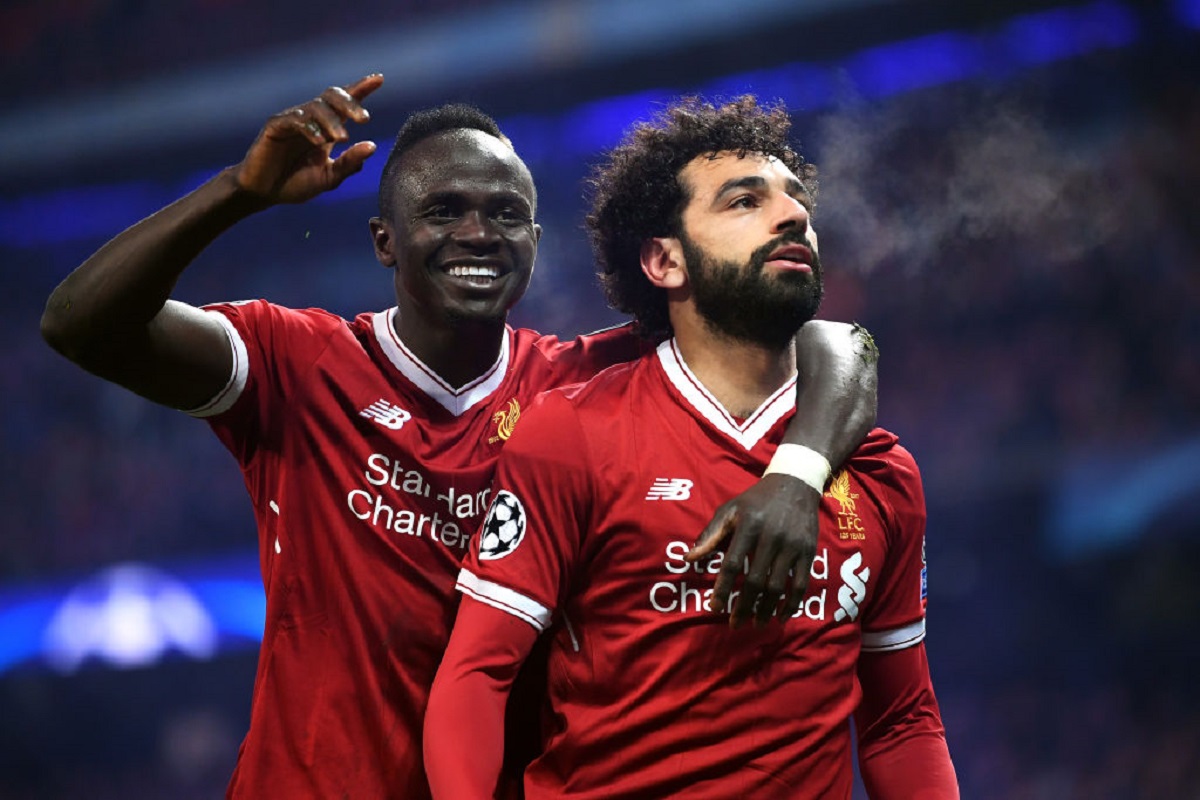Will This Move By South Sudan’s President Bring The Country Sustainable Peace?


South Sudan is the youngest nation in the world. However, it has witnessed years of conflict that has killed about 400,000 and forced millions to flee their homes. In 2018, President Salva Kiir and his former Vice-President and opposition leader Mr. Riek Machar signed a peace accord. On Saturday, February 22, 2020, Machar was sworn in as the first deputy of President Kiir. This was a day after the dissolution of the previous government.
Kiir and Machar were president and deputy at independence in 2011. However, two years later, Kiir sacked his deputy on allegations of a coup. This action sparked an ethnic conflict with devastating consequences. Taking the oath of office in front of a room crawling with diplomats and regional representatives including Sudanese leader, General Adel Fattah al-Burhan, Machar said,
“I do hereby swear that I shall be faithful and bear diligence to the Republic of South Sudan.”
Also, the president said he had forgiven Machar and asked Machar to forgive him too. President Kiir said the ceremony was “the official end of the war”. Peace is “never to be shaken ever again”. This proclamation was met with applause. Furthermore, the president called on warring Dinka and Nuer ethnic groups to do the same.
Long Route to Agreement
Hitherto, the main obstacle stopping the formation of the transitional government was President Kiir’s insistence on expanding the number of states to 32. The moment he reverted to the original 10 states, the oppositions were ready to give peace a chance. However, President Kiir also created three additional administrative areas namely Ruweng, Pibor, and Abyei. Addressing the nation two days before the formation of the transitional government President Kiir said,
“I have taken this responsibility as the President. My forces will be responsible for security in Juba until the training of the unified forces is completed, and if there are still pending things, we will continue with discussions until we reach an agreement.”
Many believe the sudden U-turn by the president was as a result of pressure from foreign donors. A statement by the US Assistant Secretary of State for the Bureau of African Affairs, Tibor Nagy, hints on the position of the donors. In public, Mr. Nagy said,
“Refusing to compromise undermines peace and risks the ceasefire. South Sudan’s leaders should put the people first. The government and opposition parties must resolve any impediments to forming a national unity government.”
Furthermore, the Intergovernmental Authority on Development (Igad) warned that it will no longer sponsor an extension for talks. Also, the donors namely the UK, US, and Norway threatened to escalate sanctions on South Sudan’s leaders. The United States has already sanctioned several warlords loyal to President Kiir and Mr. Machar for ‘spoiling peace’.
Reactions and Expectations
Notwithstanding the intense international pressure following the 2018 peace deal, Kiir and Machar pushed back two previous deadlines. The recent agreement is coming less than a week to the expiration of the latest deadline. They both agreed to form the Transitional Government of National Unity (TGoNU) that will lead to an election in three years. The expectations are high. Al Jazeera’s Hiba Morgan said,
“The people on the streets are looking to this government to solve the issue of the economy. South Sudan is facing high inflation as a result of the years of conflict. There is also the issue of the humanitarian crisis; more than half of the country’s 12 million population are in need of food aid to survive.”
The United Nations Secretary-General, António Guterres welcomed the decision. Mr. Guterres called on the members to adhere fully to the TGoNU. This was to allow the people of South Sudan to realize the benefits of durable peace and stability. A statement issued by the spokesperson of the UN chief said,
“[I applaud the] significant achievement in the implementation of the Revitalized Agreement on the Resolution of Conflict in South Sudan. The Secretary-General applauds regional and international efforts that contributed to this result. The United Nations stands ready, in close coordination with the Inter-Governmental Authority on Development and the African Union, to assist the parties in implementing the Agreement.”
The Task in front of South Sudan Transitional Government
The transitional government comes after six years and two months of civil war. Inasmuch as the coming together of the warring parties is a major milestone, the path remains shaky. This is because some of the critical issues remain unresolved including security. The transitional government also has the huge task of preparing the country for its first election since independence in 2011.
South Sudan’s transitional government also need to disarm and integrate armed groups. The economy of the nation has suffered from years of instability. The next big step will be on how to revive the economy. Convincing donors and development partners will not be an easy task. Also, if any of the parties fail to stick to their pact, the peace may fall apart quickly.







Responses